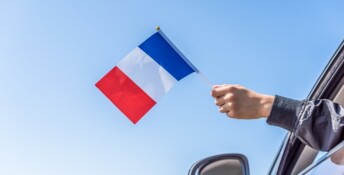
Vignette and tolls in France: General information
In France, with the exception of some sections of urban motorways, motorbikes, cars, lorries, caravans and motorhomes are charged tolls for using the motorways. A classic toll sticker (vignette), as used in other countries, does not exist in France. There are no toll charges for travelling on national roads with green signs. The use of country roads (white signs) is also free of charge.
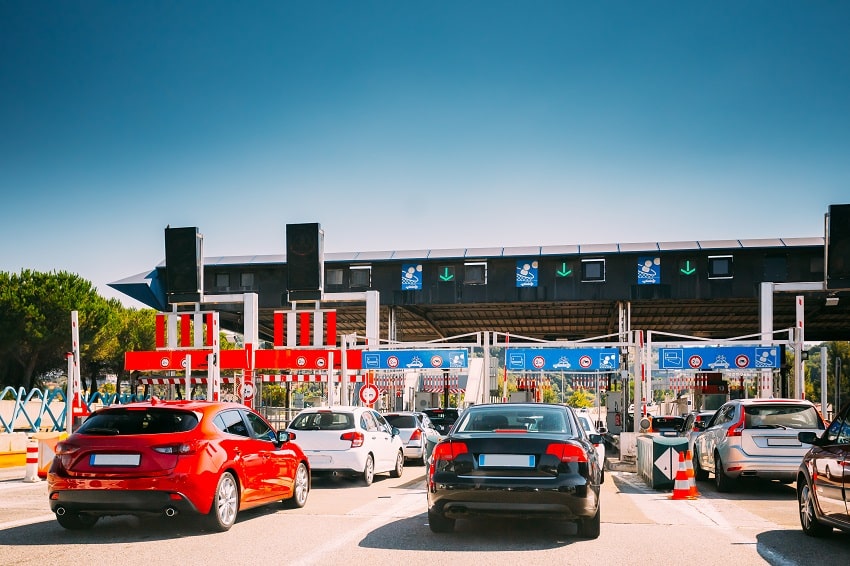
The cost of tolls in France
On average, the price for one kilometre on the motorway is around 10 cents. There are no standardised French motorway tolls as the motorways are operated by various private companies. For an exact cost calculation, it is advisable to use a French tolls calculator as the prices can vary greatly.
How to pay tolls in France
On most toll roads in France, there are tollgates after the respective exits. There are different lanes leading to specific tollgates. The lanes are signposted with signs with instruction arrows and illustrations showing the available payment options:
| Image/symbol | Payment options |
| Person wearing a cap | All payment options |
| CB (automatic counter) | Credit card |
| Cash/change | Cash payment |
| A basket with coins dropping into it | Coin payment |
| “t” | Electronic toll box “Télépéage” |
| “t” with 30 km/h | Vehicles pass through at 30 km/h without stopping with the “Télépéage” toll box |
| Green arrow | Open counter |
| Red Cross | Closed counter |
Since autumn 2022, there have also been some motorways in France that charge tolls via the “free-flow system”. The charges are calculated based on an electronic transmission of the licence plate number and can be paid online within 3 days.
The most convenient payment option for toll charges in France is the so-called “télépéage” system. It uses a chip that you attach to the windscreen of your car. If you have a “télépage” chip (a.k.a. France toll tag), you can drive on the lanes marked with a “t”. Alternatively, any driver can pay the tolls using their credit or debit card or cash (provided that there is a toll station).
The cheapest way to pay tolls in France is to carefully plan your route beforehand to find the cheapest motorway route. However, if you regularly use the French motorways, it may be cost-effective to invest in a subscription to certain road networks.
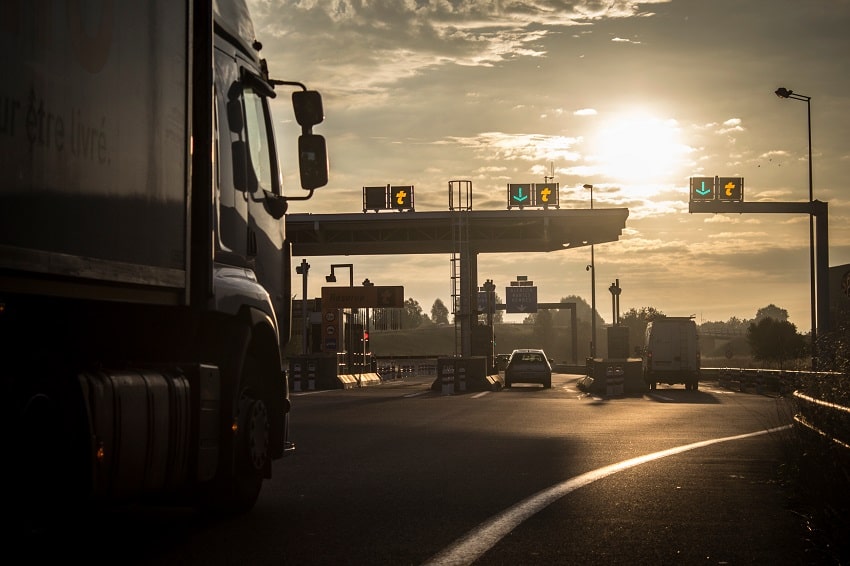
Toll vehicle classes
To calculate the fees, vehicles are categorised into 5 classes.
| Toll class | Vehicles |
| Class 1 | Vehicles (with and without trailer) max. 2 metres high and weighing less than 3.5 tonnes |
| Class 2 | Vehicles (with and without trailer) between 2 and 3 metres high and weighing less than 3.5 tonnes. |
| Class 3 | Two-axle cars, buses and lorries over 3 metres high and weighing more than 3.5 tonnes |
| Class 4 | Buses or lorries with three or more axles, over 3 metres high, and weighing more than 3.5 tonnes (towing vehicle) |
| Class 5 | Motorbikes (with sidecar) and trikes |

Is there a vignette for France?
No. Unlike in many other European countries, there is no toll pass/sticker for France. The toll system used in the country is the distance-based toll, which is paid either directly at the counter of the tollgate or via the electronic transponder “télépeage”.
Motorway tolls in France
You won’t find classic toll stations on every motorway as the free-flow system is already in use on some sections, for example on the A79 between the Deux-Chaises and Digoin junctions. There is no need to stop here as cameras scan the vehicles and collect the toll electronically. The toll motorways are indicated by a blue sign. National and country roads are not subject to tolls, which means that there is no fee for using them. Some motorways are toll-free, including the A35 from the German border to Mulhouse and the A4 between Brumath-Nord and Place de Haguenau.
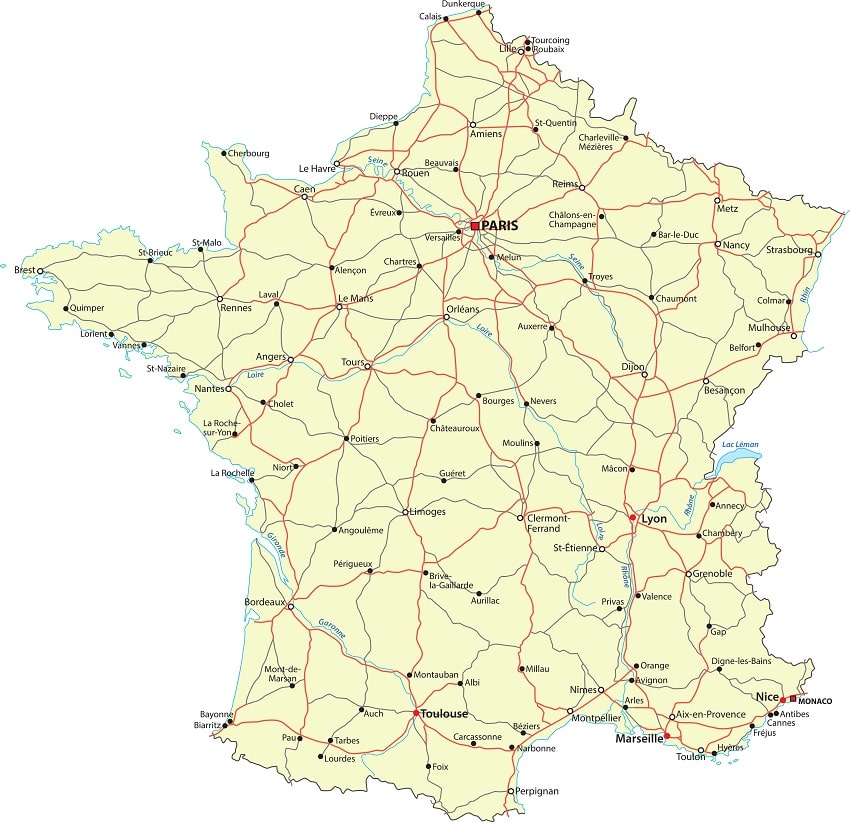
Tunnel tolls in France
Below is an outline of some of the most important tunnels that you may come across while travelling through France.
Fréjus Tunnel
The Fréjus tunnel is a connection between Italy and France. Covering a distance of over 12.87 kilometres, it takes you from Savoy in France to Piedmont in Italy or vice versa.
Fréjus toll
| Vehicle type | One-way toll from France | Return journey | 8-/20-/30-journey tickets | Monthly subscription (fixed price) |
| Motorcycle | €35.80 | €45 | €111.50/€202.30/€269.70 | €270 |
| Car | €54.10 | €67.50 | €170.10/€310.60/€405.10 | €270 |
| Caravan | €71.60 | €90 | €223.20/€404.90/€539.90 | N/A |
Mont Blanc Tunnel
This tunnel also connects France and Italy. On the French side, it is located near Chamonix and in Italy, the tunnel entrance is near Courmayeur in the Aosta Valley. If you drive through this tunnel from the Italian side, you pay 2% more due to the slightly higher VAT in Italy.
Mont Blanc Tunnel fees
| Vehicle type | One-way toll from France | Return journey | 10 single journeys | 10 return journeys |
| Motorcycle | €35.80 | €45 | €114.30 | €160 |
| Car | €54.10 | €67.50 | €171.60 | €240.20 |
| Caravan | €71.60 | €90 | €228.70 | €320.20 |
Maurice Lemaire Tunnel
The longest road tunnel in France, the Maurice-Lemaire Tunnel, is located in the Vosges mountains and connects the towns of Sainte-Marie-aux-Mines and Saint-Dié.
Maurice Lemaire Tunnel tolls
| Toll class | One-way toll |
| Class 1 | €6.60 |
| Class 2 | €10.30 |
| Class 3 | €18.30 |
| Class 4 | €30.60 |
| Class 5 | €3.90 |
Prado-Carénage tunnel in Marseille
This tunnel is located in the city of Marseille and connects the southern district of the city and the eastern motorway with the city centre and the northern districts. It is recognisable by its standard price for all vehicle classes – €3.20.
Congestion charges
An environmental badge, the so-called Crit’Air, is required to drive in some French cities. The sticker can be ordered on the official website of the French Ministry of the Environment. The online cost of a badge is €4.76 including postage. The following cities have low emission zones for which you need a Crit’Air sticker:
Paris
In Paris, the environmental toll covers the entire city centre area, which is encircled by the “Boulevard Périphérique”. The times when the city centre area may only be entered with a sticker are Monday to Friday from 8am to 8pm.
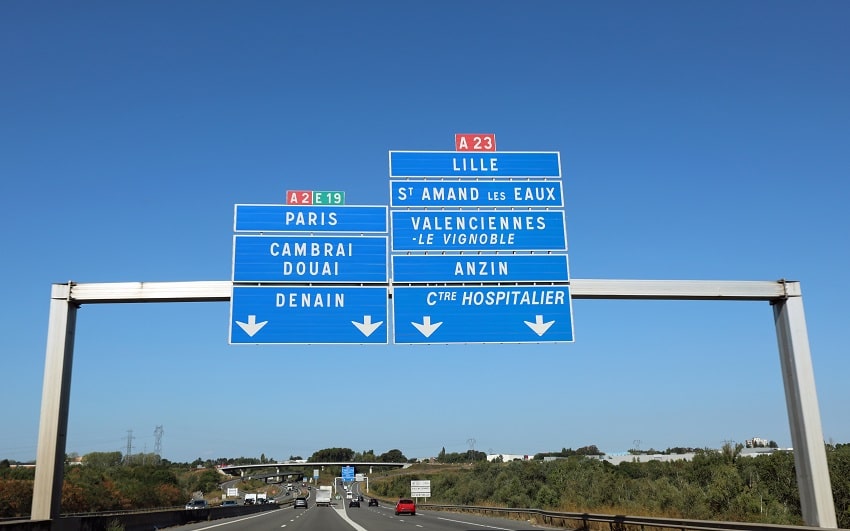
Strasbourg
In addition to Strasbourg and the 33 municipalities that belong to the region, the environmental zone also extends to the following motorways: A35 from/to Basel/Mulhouse, A4 from/to Metz, N4 towards Nancy.
Nice
The low emission zone in Nice came into force in January 2022. The permanent low emission zone includes the coastal roads and the historic centre of Nice.
Clermont-Ferrand
The environmental zone of the twin city of Clermont-Ferrand is located in the Clermont half of the city, not in Ferrand.
Marseille
The city centre of Marseille is an environmental zone, which you are not allowed to enter without an environmental badge on your windscreen.

Toll for bridges
Certain tolls are also charged for travelling on some bridges in the country. Below is an overview of bridges that cost money to cross.
Pont de Normandie
This bridge is a road bridge that connects the two cities Le Havre and Honfleur across the Seine.
Costs for crossing
| Toll class | One-way toll |
| Class 1 | €5.90 |
| Class 2 | €6.80 |
| Class 3 | €7.40 |
| Class 4 | €14.70 |
| Class 5 | Free of charge |
Pont de Tancarville
This bridge is a road bridge between Tancarville and Marais-Vernier.
Costs for crossing
| Toll class | One-way toll |
| Class 1 | €2.80 |
| Class 2 | €3.50 |
| Class 3 | €4.20 |
| Class 4 | €7.20 |
| Class 5 | Free of charge |
Pont de l’île de Ré
The Pont de l’île de Ré road bridge is located near the town La Rochelle in the west of the country.
Costs for crossing
| Toll class | Toll charges in high season (20.06. – 11.09.) | Toll charges in low season (12.09. – 19.06.) |
| Class 1 | €16 | €8 |
| Class 2 | €16 | €8 |
| Class 3 | €18 | €18 |
| Class 4 | €40 | €40 |
| Class 5 | €3 | €3 |
| Class 5 | Free of charge | Free of charge |
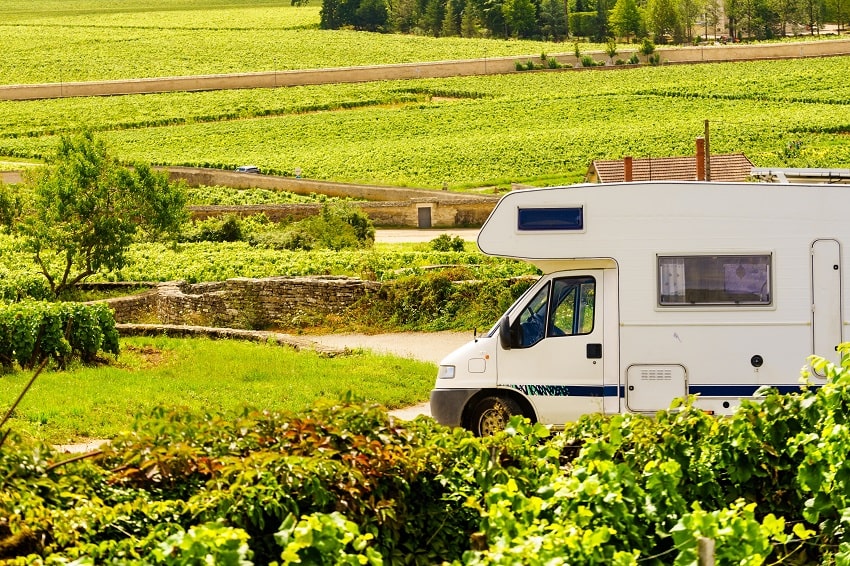
Further information can be found via these official sources:
- The official homepage of the motorway operators in France offers comprehensive information and a French toll calculator. (Page in English)
- On the website of the French Ministry of the Environment, you can find everything you need to know about the Crit’Air environmental badge and order it online.
- The website of the European Consumer Centre. It provides up-to-date information on the environmental zones in French cities.
- The homepage of Bip&Go. Here you can order a télépéage chip to use this system in France.

FAQ
Do you need a vignette in France?
No, there is no toll sticker for France that you can use to pay the toll.
How much are tolls in France?
The toll prices in France may vary as the motorways are operated by different companies. On average, you can expect to pay just under 10 cents per kilometre in France, although some routes can cost up to 21 euros per 100 kilometres.

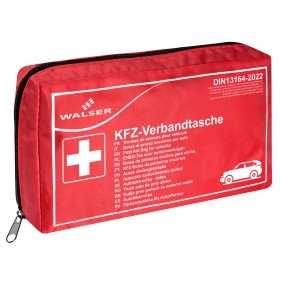
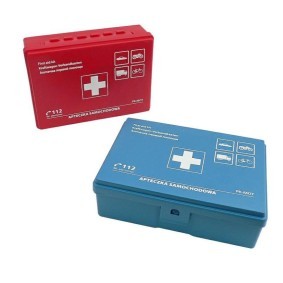
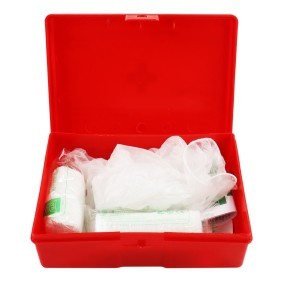


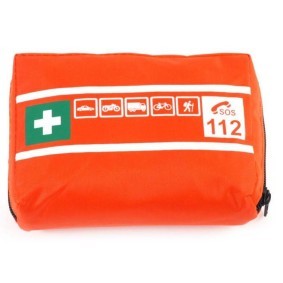



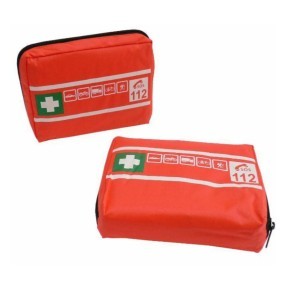
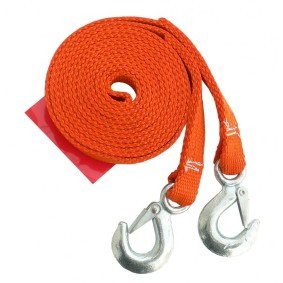

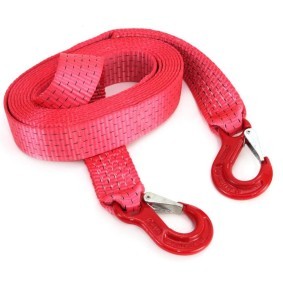
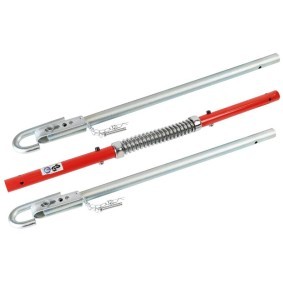

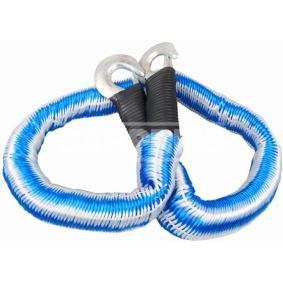




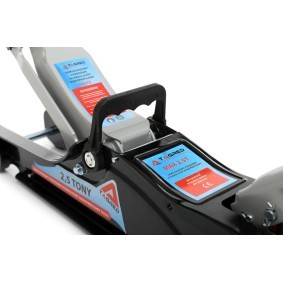


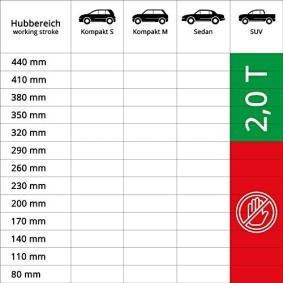



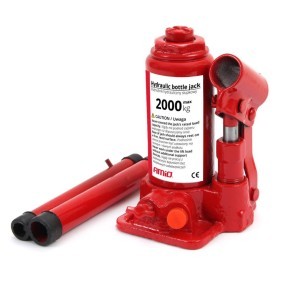
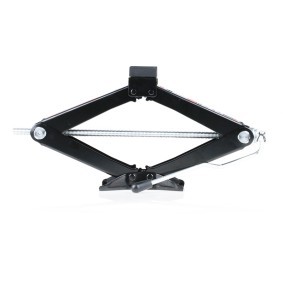
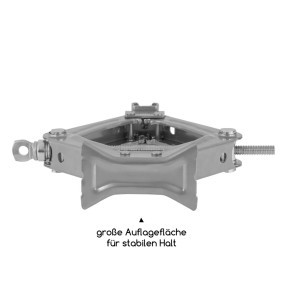

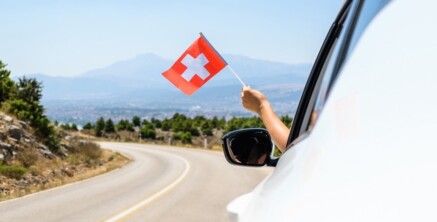

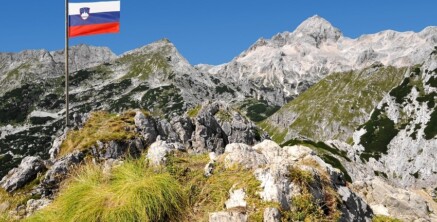
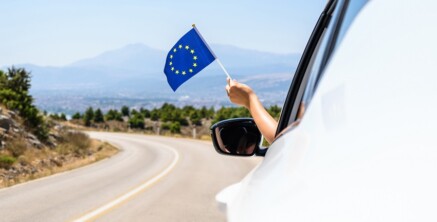
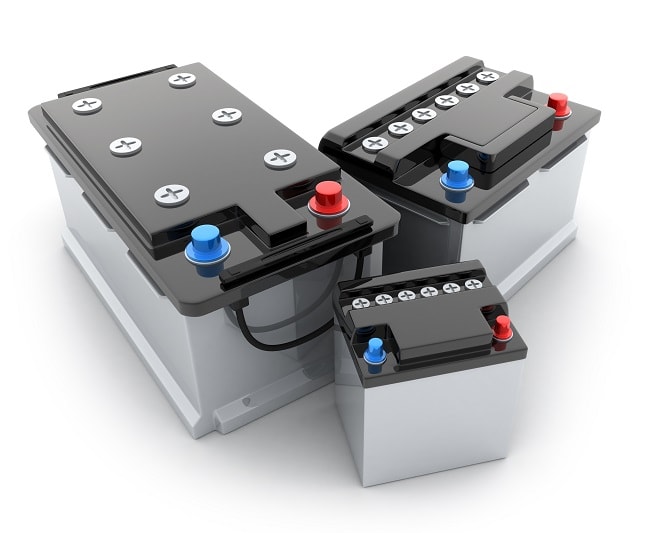
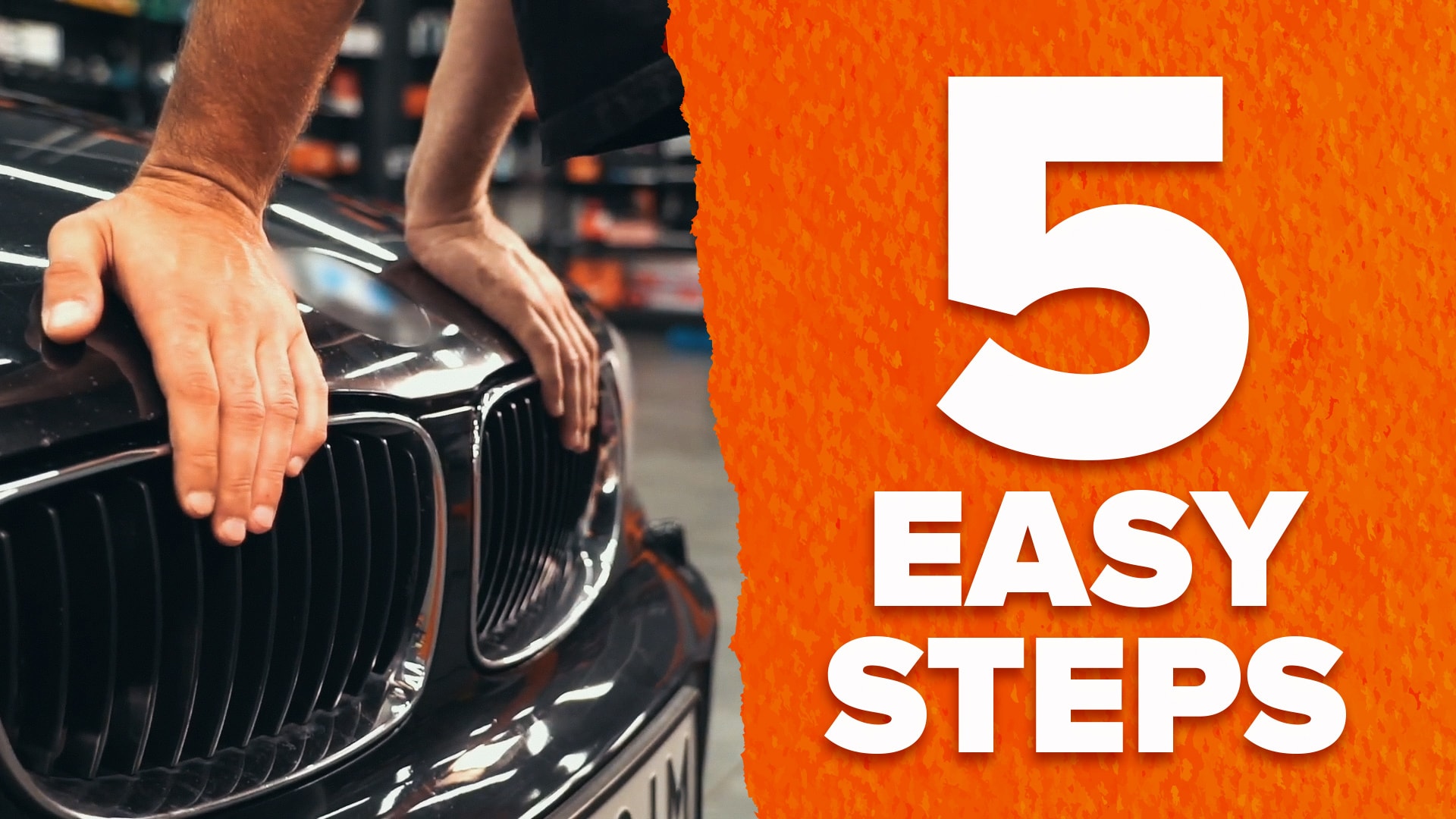
Comment